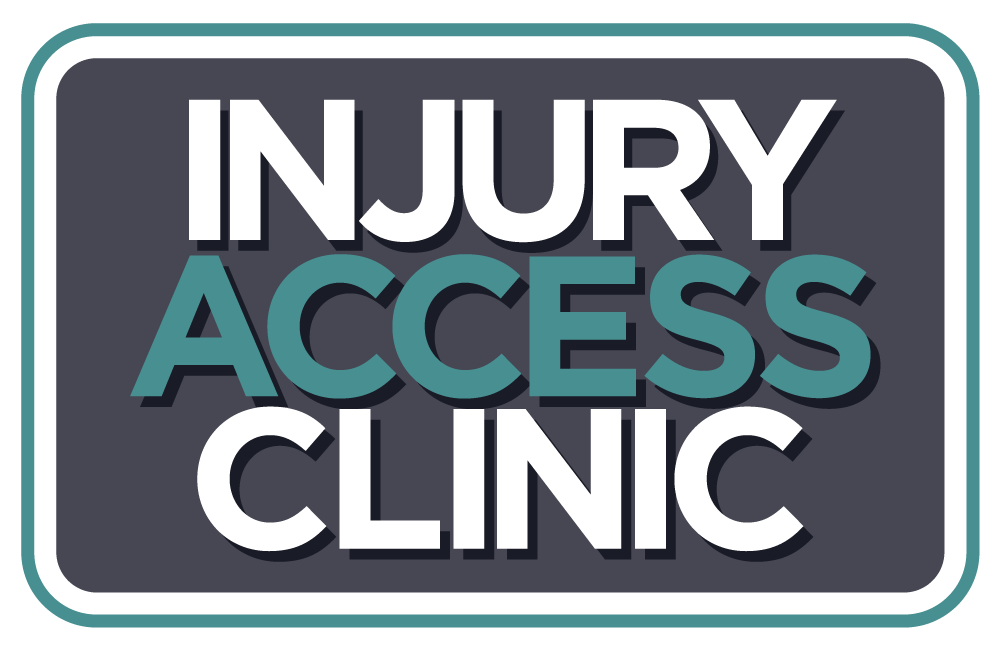FAST, EXPERT CARE WHEN YOU NEED IT
We offer our Injury Access Clinic at our Main Office Monday through Thursday, 8:00 a.m. – 4:30 p.m., and on Friday, 8:00 a.m. – 4:00 p.m.
We offer our Injury Access Clinic at our Main Office Monday through Thursday, 8:00 a.m. – 4:30 p.m., and on Friday, 8:00 a.m. – 4:00 p.m.

Online Guide to Outpatient Joint Replacement
Online Guide to Outpatient Joint Replacement
At Orthopedic Associates, our expert surgeons specialize in developing personalized treatment plans tailored to your unique needs and goals. We take pride in offering minimally invasive outpatient joint replacements at our advanced facility, Des Peres Square Surgery Center.
Outpatient joint replacement, like traditional joint replacement, involves replacing damaged or diseased joint components with specially designed prosthetics. However, the key difference lies in the minimally invasive techniques used, which preserve healthy tissue, reduce muscle disruption, and minimize blood loss. This advanced approach allows patients to return home the same day as their procedure and begin their recovery immediately in the comfort of their own homes.
Our outpatient joint replacement program is designed to offer you superior care and support throughout the entire process, including guidance from a dedicated nurse navigator. Our program also includes the convenience of a streamlined experience with pre-op and post-op care, surgery, lab tests, prescriptions, and physical therapy, all in one location.
Leveraging leading-edge, minimally invasive techniques, our highly skilled surgeons offer a range of same-day outpatient procedures, including:
- Hip replacement
- Knee replacement
- Partial knee replacement
- Shoulder replacement
- Reverse shoulder replacement
What Is Outpatient Joint Replacement?
Outpatient joint replacement is a surgical procedure where a damaged joint is replaced with an artificial implant, allowing patients to return home on the same day as the surgery. This approach offers numerous benefits, including faster recovery times, reduced costs, and the comfort of recuperating in one's own home.
Outpatient Joint Replacement Guide
The Advantages of Outpatient Joint Replacement
We are proud to offer outpatient hip, knee, and shoulder replacement to patients who meet specific criteria. Benefits of outpatient joint replacement include:
- Same-Day Discharge: Recovery for patients starts at home immediately after the procedure, promoting comfort and convenience.
- Reduced Costs: Outpatient procedures often incur lower expenses compared to traditional inpatient surgeries.
- Lower Infection Risk: Being in your own home minimizes exposure to hospital-related infections.
- Quicker Return to Daily Activities: Starting routine motions sooner can lead to a quicker full resumption of normal activities.
Are You a Good Candidate?
Outpatient joint replacement may be a good option if you exhibit the following:
- Active Lifestyle: Individuals who are generally active but are limited by joint pain
- Independent Mobility: Patients who can walk independently or with minimal assistance before surgery
- Overall Good Health: Those without significant underlying health conditions that could complicate surgery or recovery
- Home Support: Availability of family or friends to assist during the initial recovery period at home
Our Joint Replacement Experts
Our expert joint replacement surgeons each possess advanced training in joint replacement and comprehensive knowledge of the musculoskeletal system. Utilizing their expertise and experience in the reconstruction of the hip, knee, and shoulder, our doctors are dedicated to providing exceptional care, offering various treatment options and prioritizing your convenience and comfort throughout your journey.
What to Expect
Before Surgery
Preoperative preparation includes a comprehensive assessment ensuring your suitability for the procedure as well as modifications at home to facilitate a safe recovery.
Here’s what you can do:
- Know Your Surgery: Talk with your doctor to ensure you fully understand the details of your procedure, including potential risks and recovery expectations. Participate in any educational sessions offered by your doctor or hospital to better prepare yourself.
- Create a Safe Space to Recover: Set up your home to support a smooth recovery. Remove loose rugs to avoid tripping, install grab bars in the bathroom, and ensure furniture is easy to navigate with mobility aids. Stock up on essential supplies, like pain medication, ice packs, and any items recommended by your doctor.
- Reliable Assistance: Having help at home during the first few days after surgery is essential. Whether it’s family, friends, or a professional caregiver, coordinate their support ahead of time to meet your needs.
- Optimize Your Health: Aim to improve your overall health before surgery. If you smoke, quitting well in advance promotes healing and reduces the risk of infection. Address any preexisting medical conditions with your doctor to ensure they are well-managed.
- Strengthen Your Body With Prehabilitation: Engage in prehabilitation exercises to build strength and flexibility, helping to ensure a smoother recovery. Work with your doctor or physical therapist to design a program tailored to your needs.
During Surgery
Our dedicated staff combines anesthesia and advanced techniques to minimize tissue damage and help you heal faster.
Here’s what you need to know for the day of your surgery:
- Arrival and Preparation: Upon arrival at the surgery center, you’ll meet your care team. Nurses will prepare you for the procedure by checking vital signs and administering any necessary medications.
- Anesthesia: You may receive regional anesthesia, which numbs the area around the joint by blocking nerve signals, along with medication to keep you in a light sleep. In some cases, general anesthesia may be used, causing temporary unconsciousness.
- The Surgery: Your surgeon will make a small incision to access the joint with minimal disruption. They will remove damaged bone and cartilage and replace them with an artificial implant before closing the incision with sutures or staples. The procedure usually takes a few hours.
- Recovery and Discharge: After surgery, you’ll be monitored for pain management and stability. Once you meet specific criteria, such as walking with assistance, you’ll be discharged home later the same day.
Please note this is a general overview. Your doctor will go over the specific details of your surgery in advance, including any possible variations in the procedure.
Postoperative Care & Recovery
While recovering from outpatient joint replacement at home, prioritize rest and pain management. Here's what you can expect:
- Manage Pain and Incision Care: Follow your doctor’s instructions for pain medication and use ice to reduce discomfort. Keep your incision clean and dry, and only shower or bathe when cleared by your doctor.
- Commit to Physical Therapy: Physical therapy is crucial for recovery. Your therapist will guide you through exercises to strengthen your joint, improve mobility, and regain confidence in daily activities. Stay consistent with your program and communicate any concerns.
- Gradually Resume Activities: Controlled movement is key to recovery. Begin with walking aids like a cane or walker and gradually increase activity under your therapist’s guidance. Over time, you’ll return to normal tasks.
Recovery takes time, remember to be patient, celebrate progress, listen to your body, and contact your doctor if you experience unusual pain, fever, or other concerning symptoms.

Types
Of Outpatient Joint Replacement
As a leading provider in the region, our team of world-class orthopedic specialists is committed to providing exceptional care.
Treatments Include:
Outpatient joint replacement offers a viable and beneficial alternative to traditional inpatient procedures for suitable candidates. By understanding the process, benefits, and expectations, patients can make informed decisions in collaboration with their healthcare providers to achieve optimal outcomes.
To learn more about our outpatient joint replacement, please call (314) 569-0616 or visit our Des Peres Square Surgery Center.
Frequently Asked Questions
What is outpatient joint replacement?
Outpatient joint replacement is a type of surgery where patients receive a joint replacement and return home the same day to begin their recovery.
Who is a good candidate for outpatient joint replacement?
Ideal candidates are generally healthy, active individuals with good overall health, the ability to move independently, a supportive home environment, and no significant history of severe infections.
How should I prepare for my surgery?
To prepare, consult with your doctor to understand the procedure, optimize your health, set up a safe recovery area at home, and arrange for dependable help during your recovery process.
Do I need to stop any medications before surgery?
Your doctor will provide guidance on whether you need to stop or adjust any medications prior to surgery. Typically, medications like blood thinners may need to be temporarily discontinued.
Will I need physical therapy before or after surgery?
Prehabilitation can help strengthen the joint and improve flexibility before surgery. After surgery, physical therapy is usually essential for a successful recovery.
How long does the surgery take?
The surgery typically takes a few hours, depending on which joint is being replaced and the complexity of the case.
How long does recovery take?
Recovery times vary, but most patients take a few weeks to a few months to fully recover. Your surgeon will provide a personalized recovery timeline and key milestones.
Will I experience pain after surgery?
Mild discomfort is common following surgery. Your care team will manage your pain with medication and suggest techniques, like ice and elevation, to ease any discomfort.
When can I return to work or normal activities?
The recovery timeline depends on the type of surgery, your occupation, and how well you're healing. Your surgeon will provide guidance based on your specific situation.
What kind of help will I need at home?
You may need assistance with tasks like moving around, preparing meals, and daily activities for the first few days to a week following surgery
How do I manage my recovery space at home?
Ensure your home is safe by removing trip hazards, installing grab bars, and keeping essential items within easy reach. A grabber can also be helpful for reaching things during recovery.
When will I need to follow up with my doctor?
Follow-up visits are usually scheduled within the first week or two to check on your progress. Be sure to attend all follow-up appointments as recommended by your care team.
Additional Resources
For more information on joint replacement experts, treatments, and more, please see the resources at the institutions linked below.











